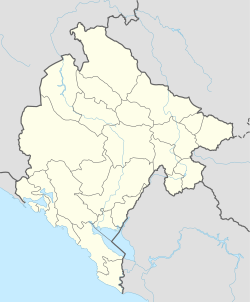패티(제목)
Pati (title)파티(산스크리트어: पति, 𐬯𐬙)는 "주인" 또는 "주인"을 뜻하는 호칭이다. 그 단어는 오늘날 인도 아대륙에서 통용되고 있다. 어원학적으로 이 단어는 인도-유럽어족에서 유래했으며 산스크리트어, 고대 페르시아어, 아베스탄어 등 다양한 고전 인도-이란 언어에서 인용구를 발견한다.[1] 현대 힌두스타니어와 다른 인도어에서는 파티와 파트니가 각각 독립형 단어로 사용될 때 남편과 아내의 의미를 취해 왔다.[2] 인도-아리아어권에서 여성에 상당하는 것은 patni(문학적으로 "mistress" 또는 "lady")이다. pati라는 용어는 예를 들어 lakhpati(lakh rupees의 주인이라는 뜻)와 같이 접미사로 자주 사용된다.[2]
현대적 용법
- 남편인 패티를 나타내는 독립된 용어로서
- 공식 직함 예: 라슈트라파티(Rashtra-pati, National President), 세나파티(Sena-pati, a Armeral of a Army, Master)
- In adjectives, e.g. crore-pati (करोड़पति, کروڑپتی, rich, master of a crore rupees), "lakh-pati" (लखपति, rich person, master of a lakh Rupees).
- 예를 들어, 댐퍼티(결혼한 부부, 주인 및 주인)와 같은 용어를 사용한다.
- 이름과 성으로. 그것은 고대부터 인도 아대륙에서 이름으로 사용되어 왔다. 예: 가나파티 또는 가나파티(गणपत, 가나+파티) 인민/군/군/다도/범주제)의 영주 Bhupathy (Mahesh Bhupathy, Bhu + Pati) 땅의 군주/토양)
어원과 동족
파티라는 용어는 프로토-인도-유럽어에서 유래된 것으로 여겨진다.[3] 아베스탄과 같은 옛 페르시아어에서는 패티 또는 페이티라는 용어를 널리 제목으로 사용하며, 예를 들어 드마나피티(산스크리트 댐패티와 비슷한 집의 주인)를 말한다.[1][3]
In Sanskrit, it is 'pat-' when uncompounded and meaning"husband" instrumental case p/atyā-; dative case p/atye-; genitive case ablative p/atyur-; locative case p/atyau-; But when meaning"lord, master", and in fine compositi or 'at the end of a compound' regularly inflected with exceptions; ) a master, owner, possessor, lord, ruler, sovereign etc. 예를 들어, 베다에서는 브라하스-파티, 프라자-파티, 바차스-파티, 파수-파티, 아팜-파티, 바후파티, 트리다사-파티, Nr-파티와 같은 단어들을 접하게 된다. 여기서 'pati'는 "Lord of ………"로 번역된 접미사다.
여러 인도 유럽 어족에서, 어원이 같은 조건 다양한 형태로(자주 하는 접미사), 그리스 δεσ-πότης부터 영어 단어"폭군"에서 예를 들어,"마스터, 폭군, 맙소사, 주인인 의미 존재한다.실질적인 오"[1]라틴어 용어를 의미 마스터 오고는 변했다"an 예제 adjective," 영어로 결과로 사용할입니다. 전위,[4] 전위, 전위 등의 말 리투아니아어에서는 독립된 단어로서의 팻말이 힌디/힌두스탄어로 팻티가 그랬던 것처럼 남편인 자신(올드 리투아니아어로 patis, 올드 리투아니아어로 patis)을 의미하게 되었다.[4]
일반 용법
참조
- ^ Jump up to: a b c Roger D. Woodard, Indo-European sacred space: Vedic and Roman cult, University of Illinois Press, 2006, ISBN 978-0-252-02988-2,
... in Iran ... dmana-paiti, the vis-paiti, the zantu-paiti, and the dahyu-paiti ... Vedic dam-pati- 'master of the house', cognate to Avestan dmana-paiti, Greek preserves δεσ-πότης 'master, despot, lord, owner'; the Avestan vis-paiti finds his etymological counterpart not only in Vedia vis-pati- 'chief of the settlement, lord of the house', but in Lithuanian vies-pats 'lord' ...
- ^ Jump up to: a b John T. Platts, A Dictionary Of Urdu, Classical Hindi And English, Kessinger Publishing, 2004, ISBN 978-0-7661-9231-7,
... lakh-pati, or lakh-patl, or lakh-pat, sm Owner of a lac (of rupees), a millionaire ...
- ^ Jump up to: a b Benjamin W. Fortson, Indo-European Language and Culture: An Introduction, John Wiley and Sons, 2009, ISBN 978-1-4051-8896-8,
... 'lord of the house' < Indo-Ir. *dams pati-, PIE *dems potis ...
- ^ Jump up to: a b Peter Giles, A short manual of comparative philology for classical students, Macmillan and Co., 1895,
... in Lithuanian pats (older patis), which means husband or lord and is identical with the Greek , Skt. patis and Latin potis (no longer a substantive) ... The Latin form of this word - potis - gives us an example of a substantive coming to be used as an adjective. In the verb possum, a corruption of potis sum, the original sense 'I am master' has faded into the vaguer 'I am able' ...


